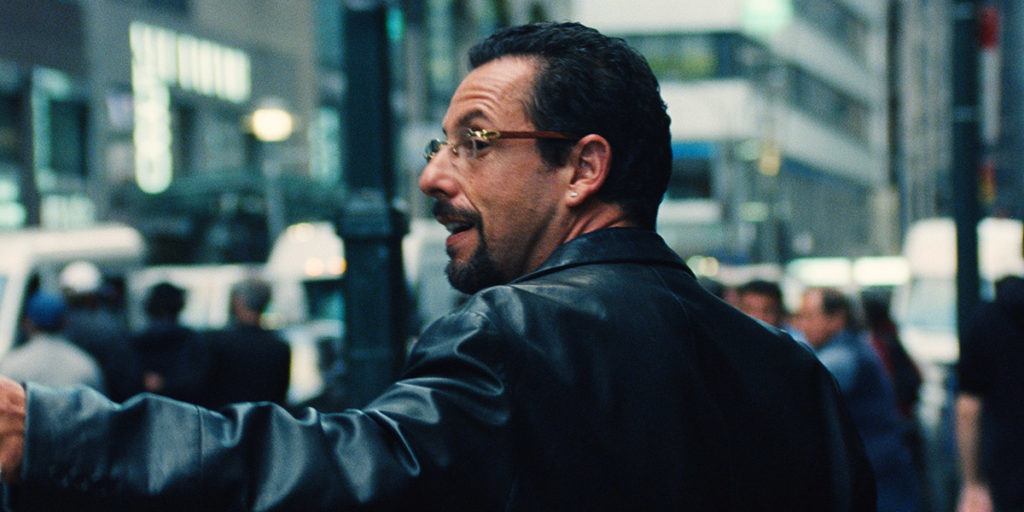Uncut Gems

Adam Sandler in the Safdie brothers' UNCUT GEMS. Image courtesy TIFF.
The Safdie brothers (GOOD TIMES, HEAVEN KNOWS WHAT) return to TIFF this year with UNCUT GEMS, starring Adam Sandler and several bizarre cameos (including John Amos). The film begins in Ethiopia in 2010. A group of miners find deposits containing black opal. The buyer, Howard Ratner (Sandler) is a collector and jewelry store proprietor in New York.
The gems arrive uncut, in stone, smuggled in an icebox of fish. He believes the opals are, collectively, worth over $1 million and plans to sell them at auction to pay off a number of loan sharks to whom he owes money. Well-known among the many celebrities who come through Manhattan, Kevin Garnett pays a visit looking for something new to buy. Foolishly, with no intent to sell the opal-encrusted stone, he shows it to Garnett who immediately decides he must have it. Despite Howard’s refusal, Garnett takes the stone in exchange for his NBA Championship ring as collateral.
I often wonder how people so repeatedly bumble their way through life without it ever catching up to them. Howard’s wife, Dinah (Idina Menzel), knows about his mistress, Julia (Julia Fox), on whom he lavishes gifts paid for, no doubt, by money he doesn’t have, owed to loan sharks, Arno (Eric Bogosian) and Phil (Keith Williams Richards) who are into him for six figures plus 17% interest, because he has a gambling habit he can’t shake.
The Safdie brothers’ formula for tension amounts to visual and auditory cacophony. Overlapping dialogues, city sounds, and a score by Daniel Lopatin that riffs a little too overtly off Vangelis’ early-1970’s studio work, overwhelm the senses. Craftier direction could maintain the separation between viewer and subject while still conveying the sense of agitation omnisciently, without dragging us through the depths of Howard’s self-dealt miseries.
While Adam Sandler’s performance as Ratner is commendable, he spends much of the movie swearing, seething, screaming, and descending occasionally times into comedy to the point of provoking audience laughter. Sandler’s attempt to convey the character’s guilt falls on deaf ears—either because it’s so unbelievable about the character, or because Sandler isn’t convincing. I guess there’s more than one flavor of annoyingly histrionic, incompetent bumbler?
If I told you this film didn’t have a happy ending, you wouldn’t be surprised at all. Getting away with it would make moviegoers irate about the two hours of their life they’ll never get back—certainly not with interest.